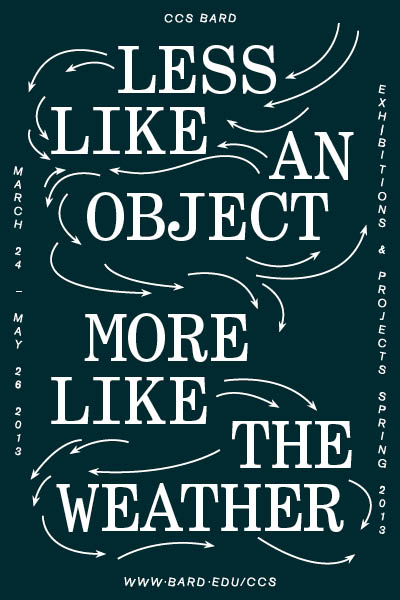Owen Mundy
Deborah Stratman
Brad Troemel & Jon Vingiano
Commodify, Inc.
Curated by Sarah Higgins
Hessel Museum of Art
Annandale-on-Hudson, NY, USA
March 24–May 26, 2013
Exhibition Webpage: CCS Bard
e-flux announcement
Expanding forms of virtual connectivity and networked interaction have given rise to modes of monitoring and control that no longer resemble traditional audio/visual surveillance. Digital interactions, such as social networking or the use of search engines and reference sites, is now contingent on a voyeuristic model of give and take. This reciprocity forces an implicit social contract: the user relinquishes control, not only over their produced content, but over their accumulated history of actions, connections, and behaviors. This is offered in exchange for greater connectivity, social visibility, and an increasingly personalized consumer experience. An industry has rapidly proliferated, driven by advances in information aggregation and predicated on the commodification of the online subject.
Monitoring and control-embedded beneath the architecture of online communities founded on the promise of connectivity-have altered the conditions upon which artists build resistant and critical practices.
Artists working to generate visibility and resistance to this substructure face two primary but limiting positions of refusal: to unplug from networked technologies, or to employ methods evolved from a hacker ethos at the risk of replicating the exploitative operations of the power structure. As an alternative, Terms & Conditions of Use argues for a technologically embedded and ethically effective structural critique. The title references the contractual agreements, implicit and explicit, to which participants in online communities are subject, while pointing to forms of artistic engagement that revise terms and conditions towards resistance.
Owen Mundy is an artist, designer, and programmer who investigates public space and its relationship to data. His artwork highlights inconspicuous trends and offers tools to make hackers out of everyday users. He has an MFA in Visual Art from the University of California, San Diego and is an Assistant Professor of Art at Florida State University.
A Network Has No Center, commissioned for this exhibition, addresses a tension between embodied agency and the illusion of agential action within digital space. Control in interactivity is externalized and formally abstracted. The images on Mylar: a special effects explosion from the making of the film Top Gun, and the gridded substructure and geopositioning icon of the Google Maps application point to where site, politics, and representation intersect with digital technologies.
Deborah Stratman is a Chicago-based artist and filmmaker interested in landscapes and systems. Much of her work points to the relationships between physical environments and the very human struggles for power and control that are played out on the land. Stratman works in multiple mediums, including sculpture, photography, drawing and audio. She has exhibited internationally at venues including the Whitney Biennial, MoMA NY, the Pompidou, Hammer Museum, Witte de With, Walker Art Center, Yerba Buena Center, and has done site-specific projects with the Center for Land Use Interpretation, Temporary Services, Mercer Union (Toronto), Blaffer Gallery (Houston), Klondike Institute of Art & Culture (Yukon) and Ballroom Gallery (Marfa). Stratman’s films have been featured at numerous international festivals including Sundance, the Viennale, Full Frame, Ann Arbor, Oberhausen and Rotterdam. She is the recipient of Fulbright and Guggenheim fellowships, a Creative Capital award, and she currently teaches at the University of Illinois at Chicago.
Deborah Stratman’s ongoing work, FEAR consists of publicly distributed business cards soliciting strangers to phone an 800 number that then prompts them to describe their worst fear. The resulting messages are compiled and presented as an audio work, accompanied by a stack of the cards. The decade-long project explores the relationship between real versus imagined cultural fears. The solicitation of fears is neither explained as a work of art, nor is it made clear that the fears may be publicly presented. The work relies on participants’ desires to speak and be heard, even to an anonymous entity with no promise of privacy.
Brad Troemel & Jon Vingiano’s project, Surfcave, is an online image sharing community that allows users to present their browsing habits in realtime. Once the Surfcave Chrome Extension is installed on a device, every image viewed online is fed into the image stream. In order to access the stream, one must first become a member of the community, submitting him/herself to the same conditions of access to personal online behavior that produce the voyeuristic reward. Only by relinquishing online privacy is the user able to access the viewing habits of others.
Commodify, Inc. is an international collective of artists working with digital media platforms. Its members, Birgit Bachler, Walter Langelaar, Owen Mundy, and Tim Schwartz, are responsible for the creation and management of commodify.us. This web based project allows users to access their social media profile data—in this case Facebook—and license that data to intervene in the existing market for their personal information. For Terms & Conditions of Use, the project appears in the form of a series of anonymous visualizations of personal data generated by social media networks. These are printed at the height of the source individual. Accompanying them is a receipt printer connected to a live feed of financial reports: scores that indicate the projected value for each of the personal data packages.
Terms & Conditions of Use is curated by Sarah Higgins as part of the requirements for the Master of Arts degree at the Center for Curatorial Studies.
Terms & Conditions of Use is part of
LESS LIKE AN OBJECT MORE LIKE THE WEATHER
2013 Graduate Thesis Exhibitions
Center for Curatorial Studies, Bard College

